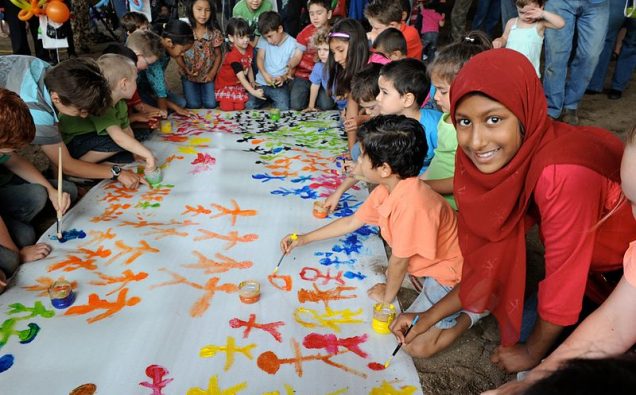
Cultural diversity is an outstanding source of exchange, innovation and creativity, and has the enormous potential to accelerate sustainable development, the United Nations said, amidst fear-based response to influx of refugees in Europe and discriminatory treatment of minorities in several parts of the world.
Marking the World Day for Cultural Diversity for Dialogue and Development, Irina Bokova, Director-General of the UN Educational, Scientific and Cultural Organization, highlighted that celebrating cultural diversity is a way of recognizing that “the wealth of cultures is the constitutive power of humanity and an important asset for peace and development, the promotion of which is inseparable from the observance of human rights.”
“Celebrating cultural diversity also means being aware of the ties that bind us to our environment, because cultural diversity is as necessary for humankind as biodiversity is for nature,” she added, as stated in the UNESCO Universal Declaration on Cultural Diversity, adopted in 2001.
Even as rapid communication and Internet advances have brought peoples together, recent economic slowdown and exodus of people fleeing Middle Eastern wars into Europe, and rise of militant organization ISIS in Iraq and Syria, as well eas political rhetoric by far right parties in some Western countries have reignited the debate on multiculturalism, and in some cases incited xenophobic positions against immigrants and refugees.
In her message, Ms. Bokova noted that celebrating cultural diversity means opening up new perspectives for sustainable development and promoting creative industries and cultural entrepreneurship as sources of millions of jobs worldwide – particularly for young people and especially for women.
“Culture offers the unique opportunity to reconcile the economic and social aspects of development – cultural goods and services have identities, reference points and values, while enabling millions of creators, artists and professionals to make a living from their work,” Ms. Bokova said.
“Celebrating cultural diversity means enabling them to practice their trade and helps them to enrich the cultural landscape, which in turn enriches us.”
In fact, she said, the core of UNESCO’s mandate – for heritage, education, information and knowledge-sharing – is based on celebrating cultural diversity that broadens our horizons and human rights that unite us.
“The enemies of human rights always attack cultural diversity, which symbolizes the freedom to be and to think, and which is unbearable to them,” Ms. Bokova said.
“On this Day, let us dare to respond to them collectively: I call upon all Member States to strengthen the spirit of this day, as a peaceful weapon against the temptations of isolationism, closure and exclusion, which lead humanity to renounce itself, ignoring its own wealth,” she concluded according to the UN News Centre
The World Day for Cultural Diversity for Dialogue and Development, proclaimed by the UN General Assembly in December 2002 and celebrated annually on 21 May, provides an opportunity for mobilization on the part of governments, policy makers, civil society organizations, communities and cultural professionals to promote culture in its diversity and in all its forms, according to UNESCO.












